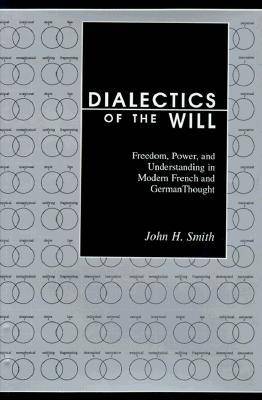Kritik: German Literary Theory and Cultural Studies
1 total work
The concept of the will is essential to Western thought. Whereas Greek philosophers develop no single model of the will, Christian philosophers explored the idea of the individual will and its relationship with God as well as the possibility for self-determination. John H. Smith reexamines the will in terms of the philosophical debates that began in the seventeenth century. He looks at the act of the willing as existing in a domain of contradictions, such as freedom and determinism and unity and fragmentation, to explain how we can be considered free beings. Dialectics of the Will thus develops a new model of human agency by analyzing modern and postmodern theory in Germany and France.The dialectical model of the will that Smith posits contributes to ongoing discussions of freedom, power, and understanding in Western thought. After examining a range of historical debates about the will and the possibilities and limitations essential to this concept, he examines the works of Kant, Nietzsche, and Heidegger and their reception by Adorno, Lacan, Habermas, Foucault, Gadamer, and Derrida. By engaging conflicting theoretical positions of contemporary French and German thinkers Smith demonstrates how theorists rely upon and can benefit from a dialectical conception of willing.Dialectics of the Will is a fascinating study that will interest feminist and gender theorists as well as students and scholars of German philosophy, critical theory, and intellectual history.
